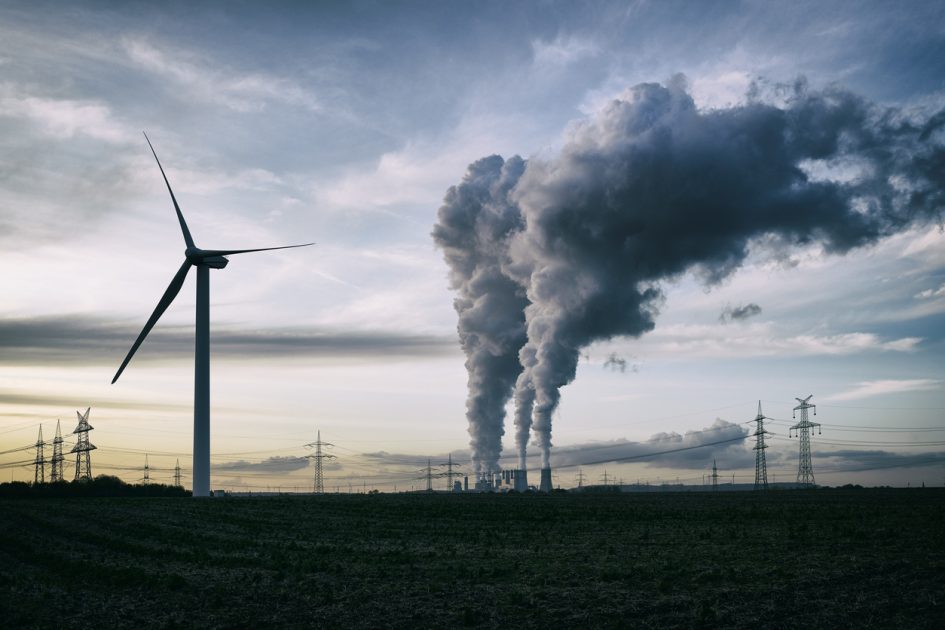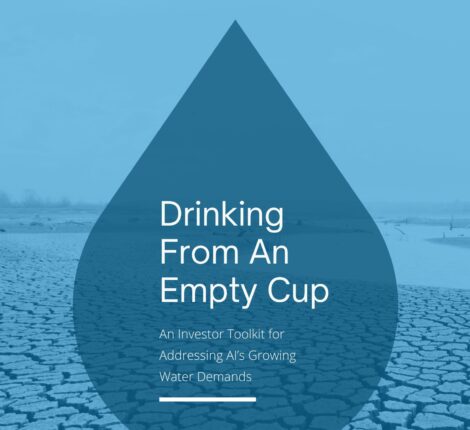Are We Going Forward? — Our CEO’s 1Q 2021 Letter to Clients
Are We Going Forward?
I don’t know about you, but I am taking a rest from my constant monitoring of the evening news. I am tired of five years of unrelenting political controversy. This does not mean that violent shootings of unarmed black men and mass shootings are not on my radar, but in order to remain hopeful that change can come, I cannot continue listening to the news every evening with multiple reports on the same disaster. It messes with my belief that we can make a difference. I am not a fan of focusing for too long on feelings of personal powerlessness because it gets in the way of creativity and imagining new solutions and possibilities. The whole point of doing this responsible investing is to use our privilege to transfer power and give voice to the powerless where we can, all while acknowledging how complicated and fractured the world is and balancing that weight with our personal and professional commitments and actions.
Speaking of complicated …
At the risk of making a long letter longer (and we know you live for a long quarterly letter), I wanted to share with you our renewable energy journey. We began with a goal of broadening our exposure to renewable energy, electric vehicles (EVs), and any combination of the two. You might think that this is pretty obvious! Tesla, hello! Well, yes, there are lots of companies claiming to be actively solving or at least addressing climate change, environmental degradation, and the energy crisis, but what we have found is that each company claiming to create a solution also contributes to an environmental problem. It is tempting to invest in a company claiming to have a solution or positive environmental impact, but it is extremely rare for that company to acknowledge the new environmental problems that they are creating. As you may recall, we do not believe that any public company is entirely socially responsible (or environmentally sustainable). We see great behavior in some areas–products or services, corporate governance, or even CEO pay only to find massive failure in gender and racial diversity, the use of prison labor, and other supply chain issues that touch on human rights violations. When looking for an alternative to fossil fuels in wind, solar, or other technologies, we know that we will run across problems around diversity, wealth and income inequality, and supply chain matters. However, when we find that these companies are contributing to environmental hazards while they are claiming to eradicate them, we have a perplexing problem on our hands.
Here is a report written by our equity research team that captures the inherent conflicts we have identified when researching alternatives to fossil fuels.
Our hope is that you will read it and send us your comments.
Our View
Clean Energy’s Dirty Secrets
In attempting to gain more exposure to the electrification of our world, we find ourselves confronting inconvenient truths regarding the green revolution that is being sold as a panacea for one of society’s greatest challenges. Clean energy is in fact not so clean, and the idea that we can abandon fossil fuels in the near future as an essential source of energy is shortsighted and inaccurate. Clean energy itself is still highly dependent on fossil fuel to mine required materials and to manufacture, transport, and install solar panels and wind turbines. Because of the intermittent nature of how they work, when the sun isn’t shining and the wind isn’t blowing, fossil fuels provide backup generation capacity to the grid. Even electric vehicles are still charged from fossil fuel-generated electricity.
It is impossible to explore investment opportunities within the renewable energy sector without constantly being confronted human rights abuses. To produce polysilicon used in solar panels, the industry is heavily dependent on the controversial Xinjiang region of China for its cheap fossil fuel-generated electricity. Producing 45% of the world’s polysilicon supply,[1] Xinjiang is also home to the Uighur Muslim minority who have been persecuted, raped, and tortured because of their religious beliefs. Uighurs make up the majority of Xinjiang’s forced labor population from which the solar industry benefits. Violating each provision of the United Nations 1948 Genocide Convention, China’s repression of the Uighurs is considered genocide according to the Newlines Institute for Strategy and Policy.[2]
When evaluating opportunities to increase our exposure to the growth of electric vehicles, we discovered similar human rights abuses within the supply chain. Cobalt is a key component in lithium-ion batteries used in EVs, and the Democratic Republic of Congo holds approximately 65% of the world’s cobalt reserves.[3] Thirty percent of these reserves are mined by hand by 150,000 “artisanal miners” including 40,000 children as young as six years old.[4] These workers are exposed to the toxic properties of cobalt, which emits hazardous radioactive and cancer-causing particles that can lead to respiratory disease, vision impairment, vomiting, and cardiac and thyroid damage.[5] The growth of electric vehicles takes a toll on our environment as well – the extraction of lithium and cobalt devastates rivers, streams, and aquatic life. Lithium, the light metal used to create batteries for EVs, energy generation, smart phones, and laptops, requires 500,000 gallons of water to produce every ton of lithium. This heavy water usage has resulted in the depletion of groundwater in Chile, Bolivia, and Argentina as well as Indigenous communities in South America, deepening already existing shortages in the region.[6] Beyond water shortages, lithium mining creates air, soil, and water pollution in local communities and leaves invasive scars on natural landscapes.
End of life processing also proves to be problematic for clean energy. With recycling being more expensive and recovered materials proven less valuable, most solar panels end up in landfills at the end of their 20-year life. The International Renewable Energy Agency estimates there will be 78 million metric tons of solar panel waste by 2050.[7] When these panels break, toxic materials such as lead and cadmium leak into soil and water systems and create hazardous health issues in local communities. Often these communities exist in developing nations where the majority of the world’s electronic waste is sent. Lithium-ion batteries also end up in landfills as it is cheaper to mine new material than to deactivate them using fossil fuels.[8] Beyond exposure to human rights abuses and environmental pollution from the mining, high switching costs (the costs to convert to renewable energy) affect these developing nations and low-income communities of color disproportionally, effectively locking them out of the “green” transition.
At this point, we must ask ourselves: are these companies creating an environmental problem while trying to solve an environmental problem? What about the impact on human life? At NorthStar, we have long acknowledged that there is no such thing as a perfect company, but, as a matter of principle, we do not in good faith think it is beneficial to solve one problem by creating another problem of arguably greater magnitude, particularly when viewed through an integrated lens that takes into account environmental challenges, social concerns, and the lack of appropriate governance frameworks.
Our investment process takes a holistic view of the industry, how our world is changing, and how the individual companies are helping to solve society’s problems. With the complexity of many moving parts still in development, we must understand the whole landscape before we can invest. For instance, within EV charging there is a chicken or the egg problem with drivers not wanting to switch to EVs without more charging infrastructure. More charging infrastructure cannot be built without more EVs on the road. More EV adoption cannot happen without increased driving range and affordability. Driving range cannot happen without more improvements in battery storage. Affordability cannot happen without more government subsidies and manufacturing economies of scale for the batteries. Surmounting all these interconnected bottlenecks is the problem that our power grid is simply outdated, and it cannot handle having everyone plug in simultaneously.
We know that it is easy to assume that we will replace all our traditional vehicles with electric vehicles, but is that what we should ultimately strive for? We are essentially replicating our current lifestyle by blindly perpetuating the creation of more products, more mining and more waste. To meet the goals of the Paris Agreement, mining of rare earth elements would need to increase by 300% to 1,000% by 2050.[9] The Earth only has a finite supply of lithium and cobalt, which means eventually they will be depleted, and we will be faced with yet another energy security problem. If we are to truly reach net zero emissions, we as a society must rethink the solution. What if the solution to all of this is really about a lifestyle change of reducing and redistributing our consumption? Buy local, unplug devices, reduce unnecessary water usage, carpool, bike, and take public transportation. Human consumption is the biggest threat to the planet’s survival. Continuing at our current levels is not sustainable, and the Earth cannot afford this mindless consumerism anymore.
At NorthStar, we are mindful of the aspiration to transition to a greener world, and we do have some exposure currently on the buy list. But we value carefully understanding all the complexities of this transition to have an informed opinion before we can invest, particularly when we do not separate the E (environment) and the S (social) and the G (governance), which forces us to grapple with constraints associated with each part of this rubric. As socially responsible investors, it is our duty to invest in the most responsible manner possible to ensure we are not creating more ethical, environmental or social problems while trying to solve an environmental problem. In a space with such complexity where there is no perfect company, we need to determine what can we manage to accept for the greater benefit of society.
Economic Update
In a recent interview on 60 minutes, Jerome Powell, Chair of the Federal Reserve, commented that the U.S. economy seems to be at an inflection point due to widespread vaccination and strong fiscal and monetary support. He pointed out that the economy would be in much worse shape without the fiscal aid provided by Congress over the last year, and he noted that he was very aware of how people on the margins of society are still struggling. He even went so far as to call Congress’ efforts in providing financial assistance to its citizens “heroic,” which seems like an odd thing to say if one believes that a well-functioning government is always supposed to ensure the wellbeing of its citizens and given the fact that the U.S. response to the pandemic under the last administration wasn’t exceptional given the size of our economy. That said, Powell’s enthusiastic posture regarding the role of fiscal support highlights a notable departure from the way fiscal support has been previously viewed by the Fed, other countries around the world, and many politicians in Congress. Remember that Biden’s $1.9 trillion coronavirus relief package was passed through the budget reconciliation process without Republican support.
With the expectation that the Fed’s monetary policy will continue as Powell has described and with the prospect of further relief/stimulus funding and more vaccinations, we believe that economic conditions are likely to improve throughout the rest of 2021. Among the uncertainties are risks related to more contagious and deadlier strains of coronavirus and the reality that some people will decide against being vaccinated. Meanwhile, we continue to believe there is more risk associated with providing too little fiscal stimulus than too much, given that we remain in the early stages of an economic recovery with eight million fewer jobs than before the pandemic.
We need to be mindful of the fact that the COVID crisis is exacerbating racial and gender inequality.[10] Prior to the pandemic, economic inequality had been increasing with people on the margins of society, mostly women and people of color, bearing the brunt of the hardship. The pandemic accelerated this.
Not surprisingly, we are encouraged by President Biden’s $2.25 trillion infrastructure plan and believe it could add high-quality jobs and move us toward a more equitable economy while positioning the country to thrive in a more competitive global environment. The plan provides new spending over eight years on infrastructure, manufacturing, research and development, water systems, broadband, and clean energy with an additional plan aimed at investing in human capital with funding allocated to universal pre-kindergarten and national childcare.[11] To pay for this new spending, President Biden is proposing a tax plan that would raise the corporate tax rate to 28% from 21%, reversing some of the 2017 tax cuts, and adding measures designed to prevent companies from avoiding or deferring taxation of offshore profits. At NorthStar, we have spoken out about the importance of taxes in facilitating a well-functioning federal government, noting that tax rates are at their lowest levels in recent history, with corporations and wealthy individuals contributing a lower percentage of their income than the essential workers who we have verbally lauded for their sacrifices in helping us move through the worst health crisis in our generation.[12]
Finally, we are encouraged by other aspects of the proposed infrastructure plan even though they may not garner enough support to become legislation. For example, eliminating fossil fuel subsidies is an essential step toward making progress on climate change, while enabling the Protecting the Right to Organize Act would make it easier for workers to form unions and extend collective bargaining rights to independent contractors. Labor’s share of national income has been declining for decades, contributing to rising economic inequality – an outcome that is due to policy choices and not inevitability.[13] Unfortunately, the recently lost unionizing attempt at Amazon is a reality check. At a time when founders of corporations and even government leaders are given God-like admiration while their false promises prevail, one wonders how bad it needs to get for workers to realize their collective power.
– Excerpted from NorthStar’s first quarter 2021 letter to clients
The forecasts, opinions, and estimates expressed in this report constitute our judgment as of the date of this letter and are subject to change without notice based on market, economic, and other conditions. The assumptions underlying these forecasts concern future events over which we have no control, and may turn out to be materially different from actual experience. All data contained in this letter is from sources deemed to be reliable, but cannot be guaranteed as to accuracy or completeness. All investments are subject to risk, including loss of principal. Past performance is no guarantee of future results. It is not possible to invest directly in an index.
FOR INFORMATION PURPOSES ONLY
This information includes a discussion of a number of companies and other financial market and social events. These opinions are current as of the date of this publication but are subject to change. The information provided herein does not provide information reasonably sufficient upon which to base an investment decision and should not be considered a recommendation to purchase or sell any particular security.
Footnotes:
[1] https://www.bloomberg.com/news/articles/2021-02-10/why-it-s-so-hard-for-the-solar-industry-to-quit-xinjiang?sref=rtfZHQKc
[2] https://newlinesinstitute.org/uyghurs/the-uyghur-genocide-an-examination-of-chinas-breaches-of-the-1948-genocide-convention/
[3] https://www.theglobalist.com/batteries-mining-cobalt-democratic-republic-of-congo/
[4] https://www.ft.com/content/c6909812-9ce4-11e9-9c06-a4640c9feebb
[5] https://www.sciencedirect.com/science/article/pii/S2300396018301836#:~:text=Particles%20emitted%20during%20cobalt%20mining,heart%20problems%2C%20and%20Thyroid%20damage.&text=Cobalt%20reaches%20the%20environment%20through,radioactivity%20or%20from%20mining%20areas.
[6] https://www.sciencedirect.com/science/article/abs/pii/S0016718516300227
[7] https://www.irena.org/publications/2016/Jun/End-of-life-management-Solar-Photovoltaic-Panels
[8] https://www.wired.com/story/the-race-to-crack-battery-recycling-before-its-too-late/
[9] https://www.wsj.com/articles/if-you-want-renewable-energy-get-ready-to-dig-11565045328
[10] https://www.cnbc.com/2020/10/23/coronavirus-is-exacerbating-economic-inequality-in-the-us.html
[11] https://www.motherjones.com/politics/2021/04/caregiving-is-infrastructure-joe-biden/?utm_source=twitter&utm_campaign=naytev&utm_medium=social&s=09
[12] https://tradingeconomics.com/united-states/corporate-tax-rate
[13] https://www.mckinsey.com/featured-insights/employment-and-growth/a-new-look-at-the-declining-labor-share-of-income-in-the-united-states#




